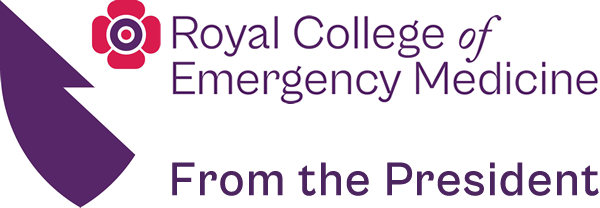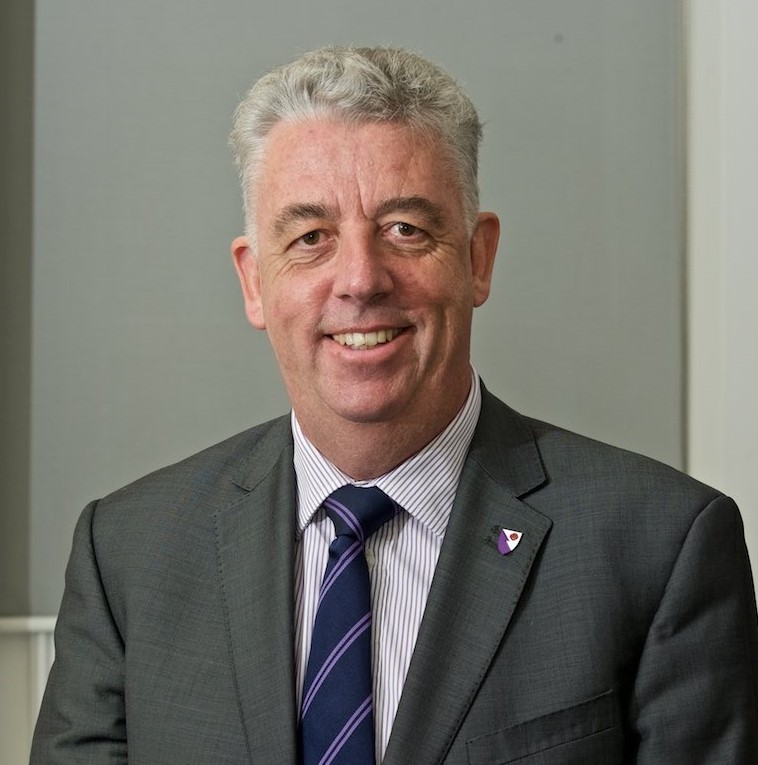Those readers who regularly following my musings in this column will be surprised to learn that out of apparent randomness occasional linkages and connections may appear. Thus it is, that as I report a very successful CPD conference in Cardiff these same readers will react with some surprise to the news that I met the partner of the Twitter follower with a predilection for Victorian sewers and mankinis!
Other highlights included celebrating St. Patricks day, in Wales with some English friends. I believe there are some photographs of me supping Guiness wearing a leprechaun hat.
Turning to much more serious matters I can also report that we held the first College dinner on March 31st. This was hosted by Baroness Finlay in the House of Lords and we were fortunate enough to have both the Secretary of State for Health and the government health spokesman in the Lords, Earl Howe, join us as guests. Other guests included presidents of colleges and senior people from NHSEngland, the Foundation Trust, the NHS Confederation and Health Education England. The chairs of all the national boards attended as did Katie Archer, the EMTA president.
This was an opportunity to reinforce the work of the College amongst the great and the good.
I have taken the liberty of extracting the key passages of my speech so that you may all know exactly the messaging of the College.
‘Emergency Medicine is both the bedrock and ‘shop window’ of acute care. It is a defining component of the healthcare system of prosperous nations. It is professionally hugely satisfying.
It is a privilege to care for people who are acutely sick and injured, often at their most vulnerable and as such the specialty epitomises the highest ideals of expert concern that took its practitioners to medical school.
In the last 20 years the discipline has evolved, expanded and delivered not only excellent care but new treatments and systems of care.
In consequence outcomes have improved for an ever wider group of patients — the victims of major trauma, sepsis, stroke, cardiac failure, respiratory failure and meningitis to name but a few.
Emergency medicine has not only delivered these better treatments it has been at the heart of the research efforts to investigate and validate them and we continue to lead and participate in world class research.
The work is enormously satisfying – how many others in a single working day can treat a punctured lung, restore a beating heart, dissolve a blood clot in a patient’s brain, relocate a dislocated shoulder and provide reassurance to the worried parents of an ill or injured child .
Emergency Medicine is for all. Our patients can be young or old, sick or injured. Some are dying, many in pain and all have reasons to need help.
We in turn are there to cure sometimes, relieve often but to care always.
It is because we care that the College has fought to highlight the circumstances that have overtaken us in the last decade.
Circumstances and consequences that if left unchecked would threaten to reduce emergency medicine in the UK to a crude triage service with the attendant loss of lives and increased suffering that would befall those for whom we care.
The College has no other purpose than to maintain and raise standards in emergency medicine and we will always speak out when this purpose is threatened.
In particular we have highlighted
- the iniquities of a tariff structure that penalises hospitals for treating the acutely sick and injured
- and a contract that penalises those who work in acute care.
Tonight it is our pleasure to welcome our guests all of whom have, are and will continue to be instrumental in addressing these issues, more often than not the unintended consequences of previous plans and therefore by no means irreversible or irremediable. The College is genuinely grateful for the support we have received and it is because of this support and recognition that we dare to think that we have turned a corner. Much remains to be done but we have started and we will not stop until we have a system of urgent and emergency care that is safe, effective and efficient for patients and sustainable for those who care for them.
I invite you to join me in a toast Please raise your glasses – the toast is ‘Emergency Medicine’
The evening was not without its lighter moments. Given the inexplicable absence of the paparazzi, Prof Mason took up the mantle of College photographer. I believe she is available for weddings.
Dr Cliff Mann FCEM FRCP
President
The College of Emergency Medicine
@CEMPresident


